It looks like you're using an Ad Blocker.
Please white-list or disable AboveTopSecret.com in your ad-blocking tool.
Thank you.
Some features of ATS will be disabled while you continue to use an ad-blocker.
KGB Assassination or a convenient car accident? - The story behind the death of Alexander Dubcek.
page: 15
share:
I am not sure how many of you know who Alexander Dubcek was and why he was important or even why his death raised so many suspicious questions, but
after looking into the case myself I thought it was worth mentioning on ATS still as It's an important topic to discuss and I'd like to get more
opinions on the whole potential assassination vs. accident issue which is discussed below.
Who was Alexander Dubcek?
Alexander Dubcek was born on 27, November, 1921, in Uhrovec, Slovakia. Members of the generations who survived and actively perceived an attempt to reform our society in 1968 remember him particularly as a committed politician, and at that time he was first secretary of the KSC (Czechoslovak communist party). After the violent interruption of the revival process of invasion by Warsaw Pact troops, Dubcek was forced to resign and was stripped of all functions. The normalization period he spent as a mere officer.
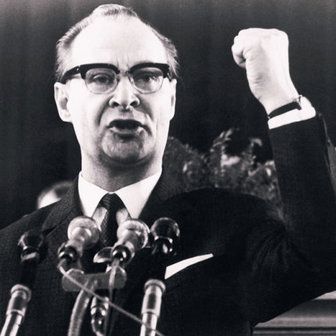
After the fall of communism in 1989, he returned to politics. In December 1989 he became chairman of the Czech-Slovak Parliament until he suddenly died in 1992 after a "suspicious" and somewhat convenient car accident. According to some speculations he hindered the Russian secret police and also the KGB.
Motives behind his death?
After the awaiting but still surprisingly sudden agreement between Prime Minister Klaus, Vladimír Meciar, that from 01.01.1993 Czechs and Slovaks will go their separate ways, it was clear that Dubcek in his position, as a Chairman of the Federal Assembly, was finished. There was however a vacancy in the Presidency of the new Slovak Republic.
Dubcek however hesitated. He did not create his own party as the basis of his ambitions. But this is not surprising when we look at his career from the times of the Prague Spring, for which he was not the initiator of the Prague Spring but its Spokesman. He was not a leader bringing new vision, nor was he a great organizer. He did however become an honest functionary who became the “face” of the flags of the Prague Spring. It was his welcoming and honest nature that drew people in and people certainly liked him.
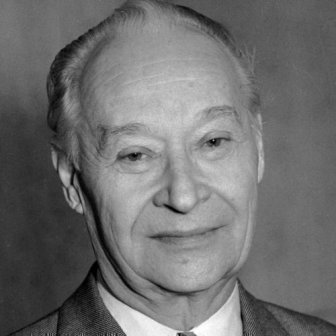
Who was Alexander Dubcek?
Alexander Dubcek was born on 27, November, 1921, in Uhrovec, Slovakia. Members of the generations who survived and actively perceived an attempt to reform our society in 1968 remember him particularly as a committed politician, and at that time he was first secretary of the KSC (Czechoslovak communist party). After the violent interruption of the revival process of invasion by Warsaw Pact troops, Dubcek was forced to resign and was stripped of all functions. The normalization period he spent as a mere officer.

After the fall of communism in 1989, he returned to politics. In December 1989 he became chairman of the Czech-Slovak Parliament until he suddenly died in 1992 after a "suspicious" and somewhat convenient car accident. According to some speculations he hindered the Russian secret police and also the KGB.
Motives behind his death?
After the awaiting but still surprisingly sudden agreement between Prime Minister Klaus, Vladimír Meciar, that from 01.01.1993 Czechs and Slovaks will go their separate ways, it was clear that Dubcek in his position, as a Chairman of the Federal Assembly, was finished. There was however a vacancy in the Presidency of the new Slovak Republic.
Dubcek however hesitated. He did not create his own party as the basis of his ambitions. But this is not surprising when we look at his career from the times of the Prague Spring, for which he was not the initiator of the Prague Spring but its Spokesman. He was not a leader bringing new vision, nor was he a great organizer. He did however become an honest functionary who became the “face” of the flags of the Prague Spring. It was his welcoming and honest nature that drew people in and people certainly liked him.

edit on 6-2-2012 by Cayla19 because: (no reason given)
Although he did at the beginning oppose the split of the country he did welcome the division and the creation of the new republic. His son, Pavol
Dubcek, stated
The so called “crumbling” of the Republic took place after the Velvet Revolution. As it goes “someone will return to their place of action as was the case of Dubcek after working in Prague, and other finish the work of your opponent” as was the case of Meciar, who as a former ardent federalist jumped into the role of the Slovak “patriot.” Thanks to his skills he managed to put the visions of Jan Carnogurský, Frantisek Miklosko into practice. But it wasn’t about what he wanted to do for the people.
Independent Slovakia was established as a by-product of the struggle for power between Meciar and Klaus. Meciar wanted not so much an independent republic as an independent power over it. Klaus, however, refused to take responsibility for part of the state, which he did not have under control and so the federation collapsed.
Now the two former ardent federalists met at the question of the President. However, Meciar was backed by his own party HZDS which he considered the most important to strengthen his position. Dubcek was backed by the SNR which did not have representation in the parliament. However, he was backed by his former voters and foreign countries, mainly left-wing Social Democrats and Socialists. But at the same time he became more of an alert to the right-wing circles. It became evident that even without function or influential party he would become a major exponent of the Slovak political scene. The dismantling of socialism would continue which was what Klaus and Meciar wanted to pursue. Therefore it became clear that Dubcek stood in the way of their plans.
Although after the division of the federation he was no longer a threat to Klaus, it was clear that as a Slovak politician with strong support by the European left-wing circles he would remain his opponent and plans of Czech economists to decimate Slovak economy so that the Czech koruna would be 1:3 to the Slovak koruna, would be hard to put into practice. Especially if his opponent was the President of Slovak Republic himself.
Over the years there have been several “suspects” taken into account on the death of Dubcek, the death never being ruled a murder instead the official story ruling it as a mere accident. At first Meciar was mainly considered a strong suspect as Dubcek, in his good health, was in his way at least until 2002. Although Meciar took the position as a prime minister, Dubcek even without the position of the President was a 'next in-line' opponent who could be backed by all of Meciar’s opponents.
Even more evidence seems to point towards Meciar's involvement also. For example the driver of Dubcek’s BMW was a man called 'Jaroslav Reznik' who was a former driver of a man called Cimo, who at the orders of Meciar raided Tiso’s villa in Trencin and transported several members of the StB (State’s National Security). Reznik never mentioned a car pushing him off the road, nor that he had lost complete control of the vehicle. He simply stated that the road was wet and he just skidded.
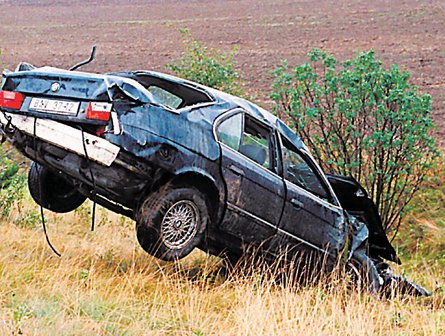
“I remember that we went for a walk in the Bratislava Slavia. Suddenly he grabbed my hand. With emotion, said: "Twenty years I've fought, and now it finally came."
The so called “crumbling” of the Republic took place after the Velvet Revolution. As it goes “someone will return to their place of action as was the case of Dubcek after working in Prague, and other finish the work of your opponent” as was the case of Meciar, who as a former ardent federalist jumped into the role of the Slovak “patriot.” Thanks to his skills he managed to put the visions of Jan Carnogurský, Frantisek Miklosko into practice. But it wasn’t about what he wanted to do for the people.
Independent Slovakia was established as a by-product of the struggle for power between Meciar and Klaus. Meciar wanted not so much an independent republic as an independent power over it. Klaus, however, refused to take responsibility for part of the state, which he did not have under control and so the federation collapsed.
Now the two former ardent federalists met at the question of the President. However, Meciar was backed by his own party HZDS which he considered the most important to strengthen his position. Dubcek was backed by the SNR which did not have representation in the parliament. However, he was backed by his former voters and foreign countries, mainly left-wing Social Democrats and Socialists. But at the same time he became more of an alert to the right-wing circles. It became evident that even without function or influential party he would become a major exponent of the Slovak political scene. The dismantling of socialism would continue which was what Klaus and Meciar wanted to pursue. Therefore it became clear that Dubcek stood in the way of their plans.
Although after the division of the federation he was no longer a threat to Klaus, it was clear that as a Slovak politician with strong support by the European left-wing circles he would remain his opponent and plans of Czech economists to decimate Slovak economy so that the Czech koruna would be 1:3 to the Slovak koruna, would be hard to put into practice. Especially if his opponent was the President of Slovak Republic himself.
Over the years there have been several “suspects” taken into account on the death of Dubcek, the death never being ruled a murder instead the official story ruling it as a mere accident. At first Meciar was mainly considered a strong suspect as Dubcek, in his good health, was in his way at least until 2002. Although Meciar took the position as a prime minister, Dubcek even without the position of the President was a 'next in-line' opponent who could be backed by all of Meciar’s opponents.
Even more evidence seems to point towards Meciar's involvement also. For example the driver of Dubcek’s BMW was a man called 'Jaroslav Reznik' who was a former driver of a man called Cimo, who at the orders of Meciar raided Tiso’s villa in Trencin and transported several members of the StB (State’s National Security). Reznik never mentioned a car pushing him off the road, nor that he had lost complete control of the vehicle. He simply stated that the road was wet and he just skidded.

edit on 6-2-2012 by Cayla19 because: (no reason given)
What made the “accident” really suspicious was the fact that Dubcek’s briefcase went missing containing documented evidence against the Soviet
Communist Party. Boris Yeltsin tried to ban the communist party and for that he needed to prove that
they had been involved in crimes. Dubcek was one of the witnesses to testify at the trial though he wasn’t the only key witness. Others decide to
testify, for example Piotr Jaroszewicz Polish ex-Premier, who was also found dead in usual
circumstances - He was found dead after being shot and murdered along with his wifeAlicja in their home in Anin near Warsaw. It's said that the fate
of his first wife along with his daughter is also still unknown. The documented evidence he owned has never been found. The trial never took place.
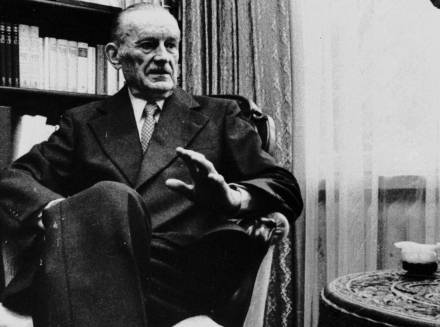
www.nytimes.com...
The accident of Dubcek itself however took place on the Bratislava-Prague 88km motorway, which is one of the most frequented motorways in Slovakia as it connects the two capitals. However, at the time somehow no witnesses were in a position to witness the event - At least none came forward anyway.
Dubcek’s son Pavol was asked whether he still thinks it was a strange accident and that is wasn’t properly investigated. He answered:
recalls son Pavol Dubcek. The vehicle passed through the expertise of specialists from the Czech Technical University and was then scrapped. Dubcek’s friend and close associate Ivan Laluha believed the driver’s testimony would be promising, but the driver exercised his right not to testify for some reason.
Dubcek's son was even more confused about how the accident was treated. He does not understand as to why his father was transported to Prague, when the accident was situated quite near the world famous Brnianska neurosurgery, when at the moment every minute counted.
In 1998 the Czech Republic lawyer Liboslav Leksa published a book called ’The Tragedy of the 88th Kilometre’, which came with the version that Dubcek became a "victim of KGB assassins." The leader of the revival movement during the Prague Spring was in fact not long after the accident in Moscow to witness the criminal activity of the Soviet secret police. Why after the accident Dubcek’s briefcase along with important documents about the occupation of Czechoslovakia in August 1968 was never found?
Rezník suffered only minor injuries and a military court sentenced him for irresponsible driving to one year imprisonment.
So was Dubcek killed by Meciar who’s position was extremely threatened by Dubcek in the new republic? Was it in fact the KGB ? Was it Meciar (who was a known Communist party member and a Soviet Communist Party supporter) working with the KGB and the Communist party to stop Dubcek from testifying? Or was it infact just a convenient accident? If that’s so was the murder of Piotr Jaroszewicz just a coincidence or were these two deaths connected?
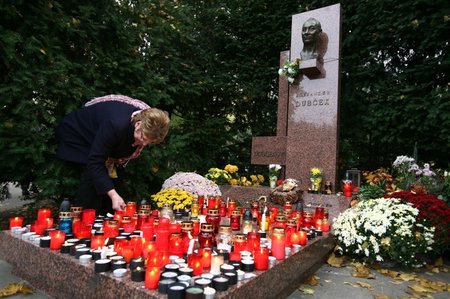

www.nytimes.com...
The accident of Dubcek itself however took place on the Bratislava-Prague 88km motorway, which is one of the most frequented motorways in Slovakia as it connects the two capitals. However, at the time somehow no witnesses were in a position to witness the event - At least none came forward anyway.
Dubcek’s son Pavol was asked whether he still thinks it was a strange accident and that is wasn’t properly investigated. He answered:
“And Kennedy's death was well-investigated? Yes, I still feel that the circumstances of the death of my father, contained oddities. Why not let professionals from BMW to investigate the accident but be content with only the technical expertise of CTU (Czech Technical University)?”
We asked for the expertise of the crashed car by BMW, which was willing to undertake the investigation, but the authorities in Prague did not agree with it
recalls son Pavol Dubcek. The vehicle passed through the expertise of specialists from the Czech Technical University and was then scrapped. Dubcek’s friend and close associate Ivan Laluha believed the driver’s testimony would be promising, but the driver exercised his right not to testify for some reason.
Dubcek's son was even more confused about how the accident was treated. He does not understand as to why his father was transported to Prague, when the accident was situated quite near the world famous Brnianska neurosurgery, when at the moment every minute counted.
In 1998 the Czech Republic lawyer Liboslav Leksa published a book called ’The Tragedy of the 88th Kilometre’, which came with the version that Dubcek became a "victim of KGB assassins." The leader of the revival movement during the Prague Spring was in fact not long after the accident in Moscow to witness the criminal activity of the Soviet secret police. Why after the accident Dubcek’s briefcase along with important documents about the occupation of Czechoslovakia in August 1968 was never found?
Rezník suffered only minor injuries and a military court sentenced him for irresponsible driving to one year imprisonment.
So was Dubcek killed by Meciar who’s position was extremely threatened by Dubcek in the new republic? Was it in fact the KGB ? Was it Meciar (who was a known Communist party member and a Soviet Communist Party supporter) working with the KGB and the Communist party to stop Dubcek from testifying? Or was it infact just a convenient accident? If that’s so was the murder of Piotr Jaroszewicz just a coincidence or were these two deaths connected?

edit on 6-2-2012 by Cayla19 because: (no reason given)
Just giving this thread a bump.
It's not a case I know much about admittedly but from reading the OP it sounds like an interesting one. I hope others who may know more about it choose to post.
It's not a case I know much about admittedly but from reading the OP it sounds like an interesting one. I hope others who may know more about it choose to post.
i m very sad when i listen that the great politician was dead in a car accident...his political background was very excellent...i think in this
article it gives a message that the whole life of the alexander and his political history are appear there.really its very sad for those who love the
alexander.
new topics
-
Merry Christmas !!
General Chit Chat: 2 hours ago
top topics
-
This is an interesting picture. Do we actually pick our leaders?
Politicians & People: 13 hours ago, 9 flags -
Trump says ownership of Greenland 'is an absolute necessity'
Other Current Events: 16 hours ago, 8 flags -
U.S. Govt Agencies That Protect Criminals in Government - National Archives Records Admin-NARA.
Political Conspiracies: 14 hours ago, 6 flags -
An Updated China Navy Analysis and the Challenges of their AI/Drone Development
Military Projects: 17 hours ago, 4 flags -
Merry Christmas !!
General Chit Chat: 2 hours ago, 4 flags
5
